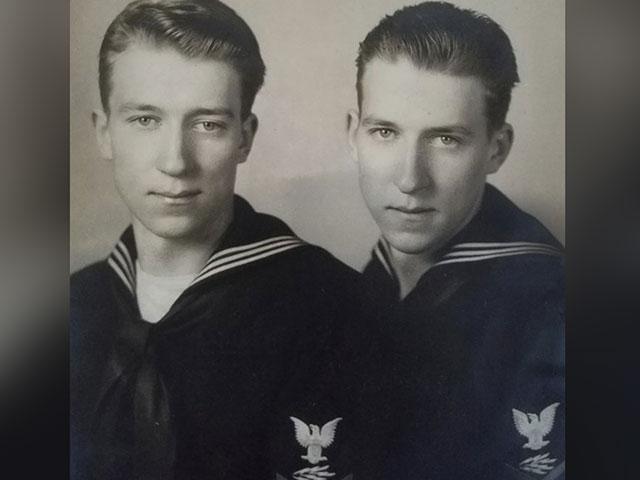NEW YORK (AP) — More than a century after his death, Frederick Douglass and July 4 remain profoundly intertwined.
Douglass was one of the greatest public speakers of the Civil War era, a conscience of the abolitionist movement and beyond and a popular choice for summing up American ideals, failings, and challenges. His withering 1852 oration in Rochester, New York ranks high in the canon of American oratory and is still widely cited as a corrective to the day’s celebratory spirit.
But it wasn’t the only time he was asked to speak at an Independence Day event. Subsequent and lesser known speeches in 1862 and 1875 track the profound changes in his thinking and in the country’s history, from days when slavery seemed unending to the midst of the Civil War to a moment when Reconstruction in the South was being dismantled and a violent and legalized system of racial oppression was set to rule for nearly a century.
“When you look at the trajectory of those speeches you see one of the most transformative eras in American history,” says David W. Blight, a Yale University professor and leading slavery scholar whose biography “Frederick Douglass: Prophet of Freedom” is coming out in October.
Douglass was in his 30s when he spoke in Rochester’s Corinthian Hall, and seven years earlier had published the best-selling “Narrative of the Life of Frederick Douglass, an American Slave,” an extraordinary account of his time in bondage and escape from Maryland to New York that is still widely taught. His July 4 address (actually given on July 5) was notable in part for how he separated the slave from the holiday itself.
“What, to the American slave, is your 4th of July? I answer a day that reveals to him, more than all other days of the year, the gross injustice and cruelty to which he is a constant victim,” Douglass said.
“To him, your celebration is a sham; your boasted liberty, an unholy license; your national greatness, swelling vanity; your sounds of rejoicing are empty and heartless; your denunciation of tyrants, brass fronted impudence; your shouts of liberty and equality, hollow mockery; your prayers and hymns, your sermons and thanksgivings, with all your religious parade and solemnity, are, to Him, mere bombast, fraud, deception, impiety, and hypocrisy — a thin veil to cover up crimes that would disgrace a nation of savages.”
But his speech ended with a prediction that slavery would not last, that its banishment in England and elsewhere would inevitably spread. In the following decade, the fragile consensus between American slave states and free states collapsed, making the country’s breakup inevitable and accelerating the rise of the new, anti-slavery Republican party. Abraham Lincoln’s election in 1860 gave Republicans the White House and was followed by the secession of 11 Southern states. The Civil War began just months into Lincoln’s term, in April 1861.
Eric Foner, the Pulitzer Prize-winning historian of the Civil War and Reconstruction era, said that Douglass had welcomed the Civil War and understood that the longer it lasted the greater the likelihood of slavery’s destruction. On the morning of July 4, 1862, he stood in rural Himrods Corners, New York, and addressed a crowded gathering about the Civil War and the “perilous state” of the moment.
“If the men of this generation would deserve well of posterity, they must, like their fathers, discharge the duties and responsibilities of their age,” he declared in his deep baritone.
No one greeted Douglass when he arrived by train earlier that day, but within hours some 2,000 people, well exceeding the local population, had turned out. The attendees were “orderly, intelligent and thoughtful,” Douglass would remember. Many were related to Union soldiers in Virginia, where Gen. George McLellan’s army was retreating from Confederate forces, the kind of setback Douglass would blame on the weakness of Union leadership, from McLellan and other military leaders to Lincoln.
“These rebels can do nothing against us, cannot harm a single hair of the national head, if the men at Washington, the President and the cabinet, and the commanding general in the field will most earnestly do their most obvious duty,” he said.
As Douglass spoke, expectations of a short conflict had ended and the debate was shifting from preserving the Union to ending slavery. Led by so-called “Radical Republicans,” Congress had voted to free the slaves in Washington, D.C., and ban Union officers from returning escaped slaves to their former owners. According to Civil War historian James M. McPherson, Lincoln would soon begin drafting what became the Emancipation Proclamation.
Blight points out a crucial change in Douglass’ thinking compared to 1852: He no longer refers to United States history as “yours,” but “ours.” He was also appealing to “deep mythology,” Blight said, by citing July 4 as a common milestone and allying himself with such founders as Washington and Jefferson, both of whom owned slaves while also condemning the slave trade.
“We are only continuing the tremendous struggle, which your fathers and my fathers began 86 years ago,” Douglass said in Himrods Corners.
By July 1875, the world had again changed entirely. The Confederacy had been defeated, slavery abolished and rights for blacks enshrined in the 13th, 14th, and 15th amendment, and Douglass would meet and befriend Lincoln. But as he addressed a picnic gathering in the Hillside section of Washington, advances made during Reconstruction, from property ownership to political office, were being erased by the violence of the Ku Klux Klan and other white supremacists. Ulysses Grant, who had sent federal troops to protect rights for blacks in the South, was nearing the end of his presidency and already stepping back from his earlier commitments, failing to act against white violence in Mississippi.
“Reconstruction was hanging by a thread by that time,” Foner says.
Douglass’ 1875 address combined a despairing view of the political climate with criticisms of the black community and appeals for blacks to improve themselves. As in 1862, Douglass emphasized a common destiny for blacks and whites and even stated “The American people are essentially of the same race. They are of the same color.” But Douglass worried about the departure of Grant, a “shelter in the storm,” and that public opinion was turning against blacks. “There are, even within the Republican party, indications of a disposition to get rid of us,” he stated.
“If war among the whites brought peace and liberty to the blacks, what will peace among the whites bring?” he asked.
His speeches over a quarter of a century changed because of the times and because of his audiences. In 1852, he was addressing a mostly white crowd of abolitionists, a decade later likely a mix of blacks and whites, Blight said. In 1875, most and possibly all were black.
“Hence you see him addressing them directly with a double message — demanding that the nation enforce Reconstruction but also appealing for self-reliance,” Blight said. “It does ring and resonates today with lots of issues.”
Copyright 2018 The Associated Press. All rights reserved.
Did you know?
God is everywhere—even in the news. That’s why we view every news story through the lens of faith. We are committed to delivering quality independent Christian journalism you can trust. But it takes a lot of hard work, time, and money to do what we do. Help us continue to be a voice for truth in the media by supporting CBN News for as little as $1.











 Support CBN News
Support CBN News









